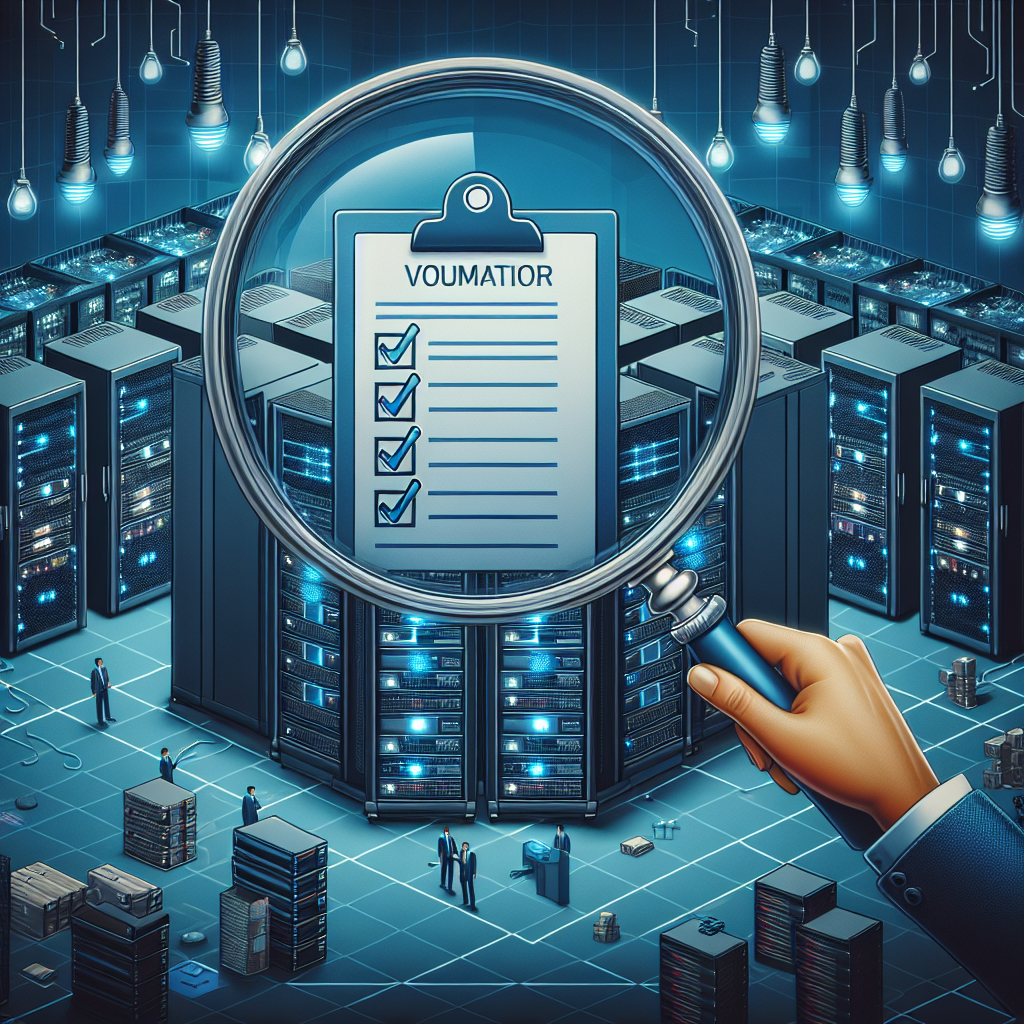When it comes to operating a data center, choosing the right vendors to work with is crucial for the success and efficiency of your operations. Vendors play a key role in providing the necessary equipment, services, and support that keep your data center running smoothly. However, not all vendors are created equal, and selecting the right ones requires careful evaluation and consideration.
Effective vendor evaluation and selection for data centers involves a thorough assessment of vendors’ capabilities, reliability, and suitability for meeting your specific needs. By following a structured approach, data center managers can ensure they choose vendors that align with their priorities and deliver the best value for their investment.
One of the first steps in the vendor evaluation process is to clearly define your requirements and objectives. This includes identifying the products or services you need, as well as any specific criteria that vendors must meet, such as certifications, industry experience, or performance metrics. By having a clear understanding of what you need from a vendor, you can better evaluate their offerings and determine if they are a good fit for your data center.
Once you have defined your requirements, it is important to conduct thorough research on potential vendors. This can involve reviewing their websites, requesting references, and conducting interviews or demonstrations. It is also important to consider factors such as vendor reputation, track record, financial stability, and customer support capabilities. By gathering as much information as possible about each vendor, you can make a more informed decision about whether they are the right choice for your data center.
In addition to evaluating vendors based on their qualifications, it is also important to consider the overall cost and value proposition they offer. While price is certainly a factor, it is important to look beyond the initial cost and consider the long-term benefits and return on investment that a vendor can provide. This may involve comparing pricing, service level agreements, warranties, and other factors that can impact the overall value of working with a particular vendor.
Finally, it is important to establish clear communication and expectations with the vendors you choose to work with. This includes defining roles and responsibilities, setting performance metrics and benchmarks, and regularly reviewing and evaluating vendor performance. By maintaining open and transparent communication with vendors, data center managers can ensure that expectations are met and issues are addressed in a timely manner.
In conclusion, effective vendor evaluation and selection is essential for the success of data center operations. By following a structured approach that involves defining requirements, conducting research, considering cost and value, and establishing clear communication, data center managers can choose vendors that align with their priorities and deliver the best value for their investment. By selecting the right vendors, data centers can operate more efficiently, reduce downtime, and ultimately improve their overall performance and reliability.


Leave a Reply